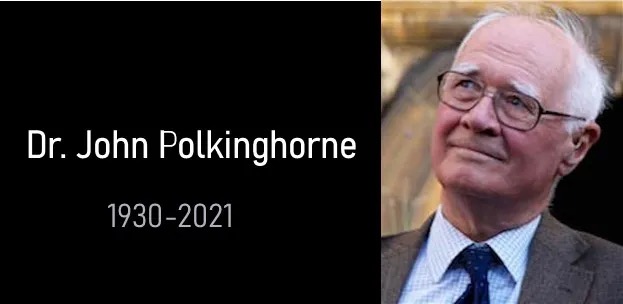Faith and Science

The South Korean YoungHoon Kim recently made headlines as having the world record highest IQ of 276. Known for his groundbreaking work in neuroscience and artificial intelligence, Kim is the founder of United Sigma Intelligence Association and is currently a research partnership advisor at the University of Cambridge and Yale University. He is also a Christian.
On social media, YoungHoon Kim declared that: “I believe Jesus Christ is God, the way and the truth and the life.” He describes theology as “the ultimate discipline of all fields of study,” and argues that belief in life after death aligns with science, by referencing quantum physics and consciousness theory. Jesus Christ is the center of both cosmic intelligence and divine truth.
I’m no scientist, but I’ve always believed that it is possible to be both a scientist and a person of faith. If science is the search for truth, and God the ultimate truth, then both faith and science have common ground for explaining who we are and how the world works.
Reading about Kim reminded me of a Bible conference I attended in Oxford, England in July 2010. The inaugural address was given by the Rev. Professor John Polkinghorne KBE, physicist and theologian. The title of his talk was “A Scientist’s Approach to Scripture.” He began by saying that, in the scientific realm, not everything that occurs can be identified rationally. Citing the wave/particle duality of light, he said it was not until the first quarter of the 20th century that quantum field theory was able to satisfactorily explain this phenomenon. Until then, he says, “the physicists had to accept this fact without being able to understand it.”
Scientific theories put forward in one generation may only be fully understood in the next. Initial advances in science are often dependent on eschewing rigid adherence to rational explanations. Professor Polkinghorne suggests that the instinctive question for the scientist to ask is not “Is it reasonable?” but “What makes you think that might be the case?” This line of questioning is more open and, he adds, more demanding.
He then turns to the study of scripture, saying,
“The truth of scripture , like the truth of physics, could prove to be stranger than we had thought beforehand, or indeed could have thought…it seems to me that biblical studies and systematic theology are two sides of the same coin, just like the inseparable complementarity of experiment and theory in physics.”
Later he expounds on the revelatory aspect of scripture, which he defines as “developmental”.
“The first thing is surely to acknowledge its [the Bible’s] developmental character. The Bible does not all have the character suggestive of a divinely dictated textbook, providing a clear and consistent set of propositional truths to be accepted on the authority of its divine Author. It looks much more like a rather untidy laboratory notebook, in which is recorded a long history of unfolding encounter with the divine Will and Purpose, progressively unveiled.”
Polkinghorne suggest the developmental character of scripture is characterized by the “primitive accounts” of the Old Testament, where God acts to destroy the enemies of Israel. Later, this “primitive thinking” is “completely negated by Jesus’ command to love one’s enemies.”
I’m not sure I agree absolutely with Rev. Polkinghorne’s argument. The Israelites began as slaves and had to struggle for nationhood and homeland. Without God’s help, they would surely have perished at the hands of hostile tribes. As well as the armed conflicts, the Old Testament also records the covenantal relationship between God and the Israelites. This relationship finds its ultimate fulfillment in the coming of Christ.
The professor takes a considered approach to scripture by separating history from story. Certain myths, such as the Adam and Eve story, embody eternal truths. As anyone who has studied the Bible in depth knows, there is always another layer of meaning which can be discovered. The comparison to science is irresistible.
“One of the striking aspects of science’s exploration of the universe has been the progressive uncovering of deeper levels of structure in the physical world…this multileveled character of physical reality has a counterpart in the multileveled character of great literature.”
Professor Polkinghorne finds it significant that when the various texts and books of Scripture were compiled, “the editors were often content to intertwine different versions of the same story, despite the resulting presence of a degree of contradiction in the details, without seeking to smooth them out into a single account.”
The Bible is such a rich source of wisdom that the mature person of faith should be not be uncomfortable with the occasional contradiction. And the scientist may have a theory on the nature of light particles, without having the benefit of absolute proof. Imperfection and uncertainty are a feature, not a flaw, of our world.
It leaves us with the inexhaustible quest for truth and knowledge, which at times means ‘wrestling with ambiguity.” Professor Polkinghorne, as both scientist and Christian, has what he calls “multiocular vision.” There is wisdom in acknowledging that truth has more than one voice. He teaches us that, by keeping an open mind and an enquiring spirit, there is much to learn from both faith and science.
Fr. David


0 Comments
There are no comments.
Stay Tuned
Sign-up for David's newsletter